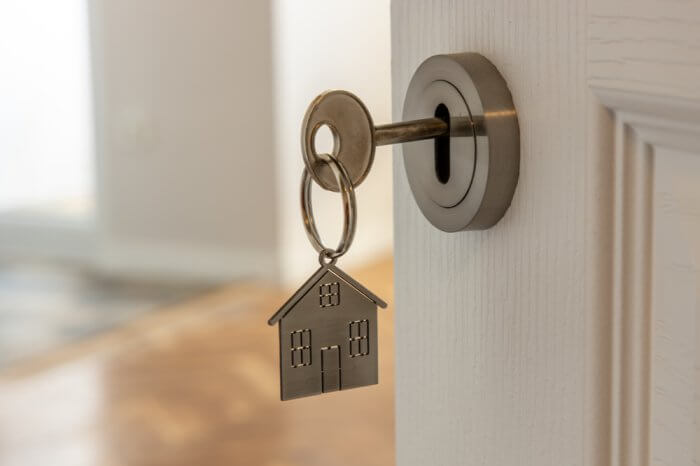
Have you ever noticed the French word for dead—“mort”— in mortgage?
It’s funny because so many of us joke we’ll be paying it off for the rest of our lives. The word – which comes from the Latin phrase “dead pledge” – was first used during Middle Ages when land was pledged until a debt could be settled.
Centuries later, mortgages are still causing us pain! But unlike our feudal forebearers, we have access to knowledge and tools to help us take back control!
How long does it take to pay off a mortgage?
Most borrowers start on a 30-year loan term, but that time frame isn’t set in stone.
Some people will find they can pay down their loans much faster as the equity in their property grows and their loan-to-value ratio improves, which will usually make them eligible for better rates.
Refinancing every couple of years to make sure you’re always on a competitive rate can make a huge difference. Lower rates boost your capacity to save and make additional repayments. While you’re at it, you can consider switching to weekly or fortnightly repayments to reduce interest.
Offset accounts can be another great way to shave years off a loan. Compare the Market analysis shows that having just $25,000 in an offset account for a $500,000 loan with an interest rate of 5.84% could reduce your loan term by two years and 11 months and save more than $100,000 in interest over the life of the loan.
But not everyone is able to get ahead. People who experience mortgage stress may be required to extend the life of their loan or switch to interest-only payments, which isn’t ideal because they’ll also end up paying more over time.
How much can I borrow for a mortgage?
This will depend on a number of factors including your savings, your salary, job stability and living expenses and credit profile. Borrowing alongside a partner with a second income will also boost your borrowing capacity.
But remember, just because you can borrow a certain amount of money doesn’t mean you should max out your debt!
Most banks apply the 3% serviceability buffer that’s recommended by the Australian Prudential Regulation Authority. It’s there to help protect borrowers from the risk of taking out excessive debt in the event of additional increases in the cash rate.
Unfortunately, this buffer can be an issue for borrowers who find themselves in negative equity. If the debt is too large, or their circumstances have changed, they may find they no longer pass the stress test to qualify for better rates.
What can impact your borrowing power?
RBA cash rate moves can have a big impact on borrowing power.
The team at Compare the Market crunched the numbers and found that a couple with a household income of $150,000 and no children has seen their borrowing power shrink by almost 30 per cent since May last year.
It’s a similar story for a family with two children who earn $150,000 per annum combined. In May last year, they had the potential to borrow $912,000. Now, after all the rate increases, that same couple can only borrow $640,000… a $272,000 decrease.
| Borrowing capacity | May 2022 Assumed variable rate of 2.86% | Assumed variable rate of 6.5% | Difference between May 2022 and 6.5% | |
| Single with no dependents on 75K | $556,000 | $390,000 | $166,000 | |
| Couple with no dependents on combined 150K | $1,030,000 | $723,000 | $307,000 | |
| Family with two dependents on combined 150K | $912,000 | $640,000 | $272,000 | |
| Table constructed using the Minimum Living Expenses table per income bracket and family structure. May 2022 calculation assumes a variable rate of 2.86 per cent. The second column calculation assumes an average variable rate of 6.25%. The third column assumes there is one more 25 basis point increase, and that is passed on in full, for an assumed variable rate of 6.5%. | ||||
While RBA moves may be out of your control, there are a lot of other ways borrowers can take control and have a positive effect on their borrowing power.
Keeping an eye on your spending and limiting big-ticket purchases is another way to show your bank that you’re a safe pair of hands. Checking your credit score is a helpful way to learn about your credit history and your current standing.
For example, you might want to consider paying off and closing your credit card, or reducing your limits.
Our analysis at Compare the Market showed that having a $15,000 credit card limit could reduce someone’s borrowing power by $71,000. So taking a few steps to reduce or remove these liabilities could help you towards your property goals.
| Credit card limit | Borrowing Power with credit card limit | No credit card | Impact |
| $2K | $542,000.00 | $552,000.00 | $10,000.00 |
| $10K | $505,000.00 | $552,000.00 | $47,000.00 |
| $15K | $481,000.00 | $552,000.00 | $71,000.00 |
| Calculations are based on a single with no dependants with an annual income of $100K. Expenses have been calculated using the Household Expenditure Measure (HEM) for the postcode 4000 and a variable rate of 5.99% was used. | |||
How much deposit do I need for a home loan?
Most banks will accept a minimum deposit of 5% – that’s $25,000 if you’re looking to purchase a $500,000 home.
But ideally, you’ll have saved a 20% deposit when you apply for your home loan. This will help you qualify for better rates that are reserved for borrowers with a loan-to-value ratio of 80% and under. It will also help open more doors with more lenders.
Lenders want to see that you’re financially secure and able to save because it’s a good indication you can meet repayments and service a loan.
A 20% deposit will also help you avoid Lender’s Mortgage Insurance – a fee charged by lenders for taking on additional risk.
If you’re struggling to squirrel away 20% because property prices are rising faster than you can save there are new government schemes like the First Home Guarantee that help buyers with a deposit of as low as 5%. You’ll need to see what criteria and caps apply.
Some banks will also wave LMI for people in professions with a track-record for stability and higher wages like doctors, lawyers and dentists.
Should I fix my home loan?
This is going to depend on your circumstances and what’s right for you.
You could have saved money by locking in an ultra-low fixed rate and delaying the impact of rate hikes in early 2022.
But generally, when we’re at the peak of the cycle – which we probably are now – fixed rate loans are a leading indicator on where the market is thinking interest rates are going to go.
That’s because banks won’t reduce their fixed rates unless they think it’s a safe bet. The reality is that rates could be much lower in four years.
History tells us it’s usually better to remain a bit flexible and consider staying on a variable rate when we’re at the peak of the cycle and rates are widely tipped to go down.
It just depends whether you want to take a chance sitting on a higher variable or if you would rather lock in a stable rate that you think you can afford.
What does a mortgage broker do?
Mortgage brokers are the middleman between you and the lender. They’ll help you find and apply for a home loan based on your needs.
Digital-first mortgage services like Compare the Market are a great place to start your journey. Once you’ve compared rates, a mortgage specialist will work on your behalf to negotiate a better offer.
David Koch is Compare the Market’s Economic Director.







